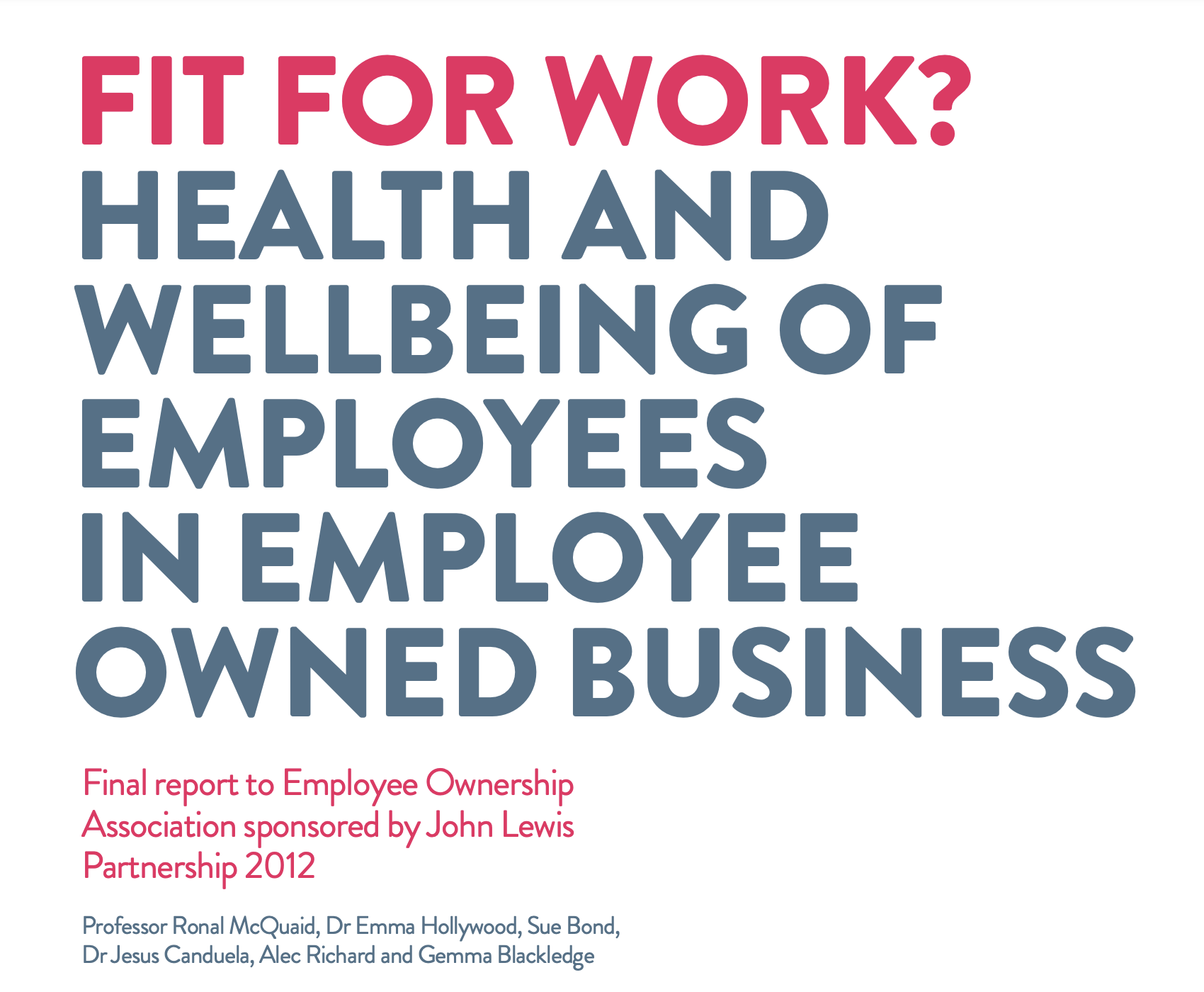Here’s the full, original report: Fit for Work? Health and Wellbeing of Employees in Employee owned Businesses
This report was commissioned by the Employee Ownership Association in the UK and sponsored by the John Lewis Partnership some years ago. It is very relevant to the current debate in Australia on health and well- being in the workplace. The research report provides independent evidence on the impact of employee ownership in relation to the very important question ‘is there a link between employee ownership and healthier workplaces and higher levels of well-being for employees?’
The Importance of Health and Wellbeing at Work
The concept of employee wellbeing has moved up the business agenda in recent years. It has been widely argued that improving people’s working lives not only improves personal wellbeing but can also lead to more successful organisations. As part of this many employers are moving towards managing employee health rather than managing employee sickness. Tackling employee sickness and improving health and wellbeing at work makes good business sense by improving productivity and performance at work.
Employee Ownership
Given that employee ownership is a viable and competitive part of a sustainable economy, it has been suggested that organisations with employee ownership have:
- Higher levels of employee satisfaction, employee commitment and customer satisfaction
- Better financial performance
- Higher productivity
- Improved work quality
- High levels of productive employee engagement
- Lower rates of absenteeism
- Ability to create jobs more quickly
- Greater resistance to market fluctuations and recession
The research was based on over 1000 direct interviews and compared to relevant national surveys, in depth case studies and a wide definition of wellbeing at work including factors such as:
- Involvement in decision-making and communication;
- Job satisfaction
- Control over work
- The management of change
- The management of health at work
- Health and wellbeing policies
Key Findings
- Employee-owners have higher levels of job satisfaction than those in non-Employee Owned Businesses (EOBs), are more satisfied with the work itself; feel a greater sense of achievement from work with increased fulfilment and job security; and more would recommend their workplace as a place to work.
- Employees in EOBs have more control over their work, including the tasks they do; the time they start and finish work; scope for using their own initiative; and having enough time to get their work done. Having control over work was something employees valued, even if they only had control over a small part of their job.
- EOBs have better communication and decision-making practices.Managers listen to employees’ views; respond to suggestions; allow employees to influence final decisions; and understand employees’ views. Involvement in decision-making is generally seen as integral to working for an EOB.
- The way in which change in the workplace is managed impacts on employees’ perceptions and experiences. Managers in EOBs were generally seen as being good at informing workers about change, although it remains a cause of stress for employees and managers.
- When asked to compare experiences of working in non-EOBs, it was found that the majority were more satisfied with their work now; felt they had more influence; felt they had more support from their immediate manager; were more motivated to do their job well; and nearly two-thirds (63.9%) preferred working for an EOB.
- Levels of health were quite high and slightly higher than the overall working population. Most respondents felt that their organisations had good policies in place to support health and wellbeing and management were interested in their wellbeing. Overall, most employees reported that they felt well treated by employers when they were sick or absent from work, due to health reasons.
Conclusion
The research found that employees in employee owned businesses report high levels of satisfaction in relation to those factors thought to influence levels of wellbeing at work. This includes areas such as communication, decision-making, job satisfaction, control and how change is managed. The results indicate that the way employee owned businesses organise and manage work does have a positive impact on employee wellbeing.

